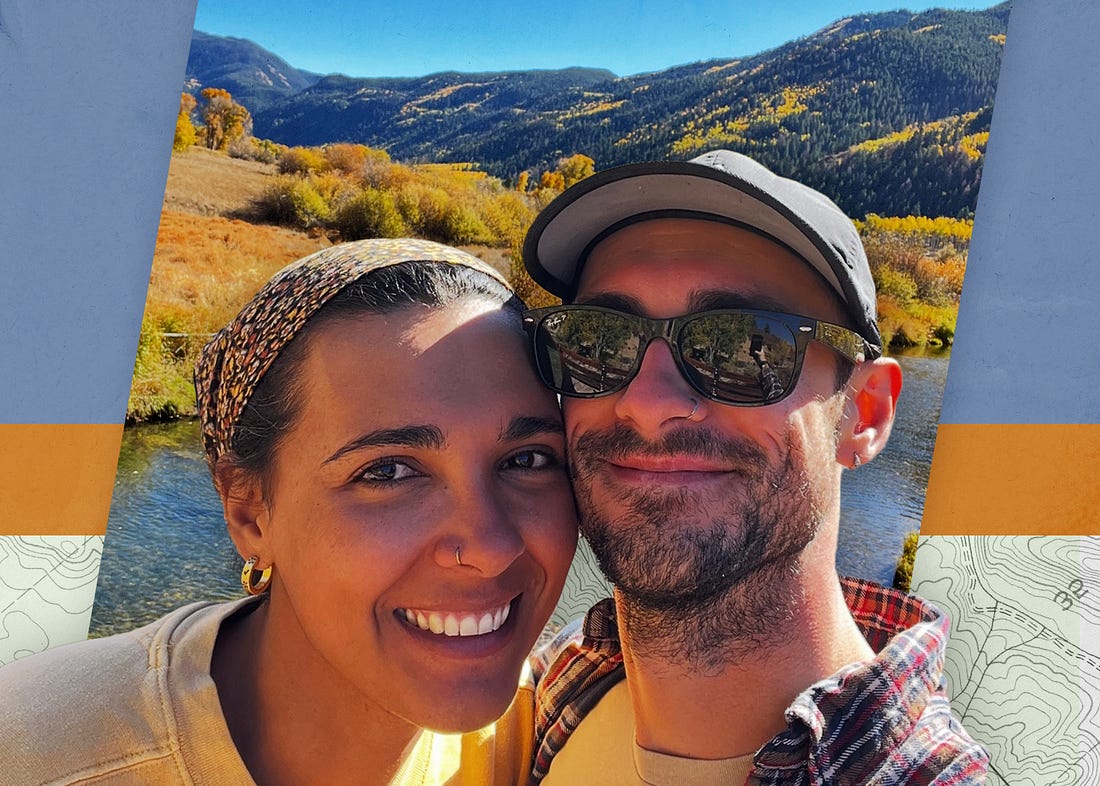|
 |
This is the second installment in our two-part Huddled Masses series on the stress that Trump’s deportation regime is putting on families and relationships. In part one, we discussed how the realities of immigrants’ lives bear little resemblance to the caricatures popular with Trump and his supporters: They’re often married—sometimes to U.S. citizens—and have kids, friends, and communities. The mass-deportation machine is ripping all that apart, depriving those communities of people they adore, and sometimes forcing out U.S. citizens who have no choice but to follow their deported loved ones.
Part two of our series presents the story of a second family facing that desperate choice: whether to leave the country to stay together.
We’d love to hear your thoughts on these stories. To join in the comments section, sign up for Bulwark+ today:
–Adrian
He Was a DREAMer. They Married. Trump Tore Their Life Apart.
The wrenching difficulty of the decision to self-deport.
“A Lot of Conversations, Research, and Crying”
IT’S EASY TO FORGET THAT back in 2012, Mitt Romney was an advocate for self-deportation. The Republican challenger ran on a platform that explicitly called for the lives of immigrants to be made so difficult that they would leave on their own.
So while self-deportation may have seemed like a draconian concept introduced during Donald Trump’s second term in office, in reality, many in the immigrant-rights community knew Republicans had a longstanding interest in the idea and only needed an opportunity to implement it. Those advocates understood that while such a policy would push some immigrants to recede further into the shadows, others would choose to leave everything behind to start anew in a foreign country. We may never truly know how many families have made that wrenching choice, or what finally pushed them to do so.
This is the story of one such couple.
Mateusz, 30, is from Poland. A former DACA recipient, he saw the writing on the wall before the 2024 election and brought up the prospect of moving abroad with his wife, Madeline, a U.S. citizen, also 30.
“She pushed it away because it’s terrifying,” Mateusz told The Bulwark, asking to use only their first names to avoid reprisals at work.
The two had built their entire lives in the United States. Madeline works for an education nonprofit, and Mateusz is a veterinarian technician. They were married in Boulder, Colorado and grew to love hiking in Rocky Mountain National Park. It became tradition to go to Lollapalooza every year to hear artists like Metallica and Chappell Roan. Mateusz would take road trips like the one he did for his thirtieth birthday, where he zigzagged from Los Angeles to Las Vegas to Zion National Park in Utah, hitting Death Valley twice on the way and stopping to do laps at a racetrack. Those sorts of moments are easy to take for granted when you’re living your life normally. It’s when you’re forced to imagine never being able to enjoy them again that they become precious.
Mateusz and Madeline were being forced to confront that prospect. And so, as the 2024 election neared, Madeline began to reconsider uprooting. Both she and Mateusz were hopeful that Kamala Harris would pull out a victory, but they feared a redux of Hillary Clinton in 2016. The leadup to Election Day was agonizing. Mateusz felt there was collective denial over Trump’s chances of winning—and when the votes came in, the couple felt as if they were watching a slow-motion trainwreck. The election clinched it for them: Madeline agreed that they should leave.
They just couldn’t figure out where to go.
They looked at Ireland, but realized the visa and work-permit situation would be arduous. They considered France because Madeline speaks the language, but France presented similar challenges. They initially ruled out Poland because Madeline doesn’t speak Polish, which is notoriously difficult to learn. But then they realized Mateusz’s Polish citizenship would make it easier for Madeline to secure a permit for residency. It didn’t hurt matters that Mateusz had some inheritance there to help them get on their feet.
When Mateusz began chronicling his self-deportation plan on Reddit, he felt what he called “white guilt.” He was aware that there are many nonwhite undocumented immigrants who are having a much more difficult time under the Trump administration—unable to pick up and move, yet ever more fearful of what life increasingly looks like at home.
While most people were supportive, some, assuming Mateusz had simply overstayed a visa, told him he didn’t know what the “real” undocumented story was. He quickly shut them down. He hadn’t flown to the United States on a visa. A Polish coyote had brought him and his mother across the southern border two months before the September 11th attacks. Taking a flight from Amsterdam to Mexico City that summer, they headed north to Matamoros, and from there made their way into Texas near Brownsville.
“I walked [through] Matamoros on foot, crossing the Rio Grande into Texas,” he said. “We had to throw away any article of clothing with Polish wording, toys, and videotapes.” When he made that trek, he was 6 years old.
By 2018, Mateusz was living in the United States legally as a DACA recipient, but a tough financial stretch left him temporarily homeless and unable to pay for a DACA renewal.
As things improved, he met Madeline, a girl from Michigan, on the dating app OkCupid. They went out for beer, grabbed food, and felt a connection. They were both nerdy and discussed risky, sensitive topics people often avoid on first dates, like politics and immigration policy.
But that wasn’t what drew Mateusz to Madeline. “She was hot as shit, for starters,” he explained. “But she was also a challenging person to be around—she made you think, she asked hard questions and didn’t shy away from having difficult conversations.”
